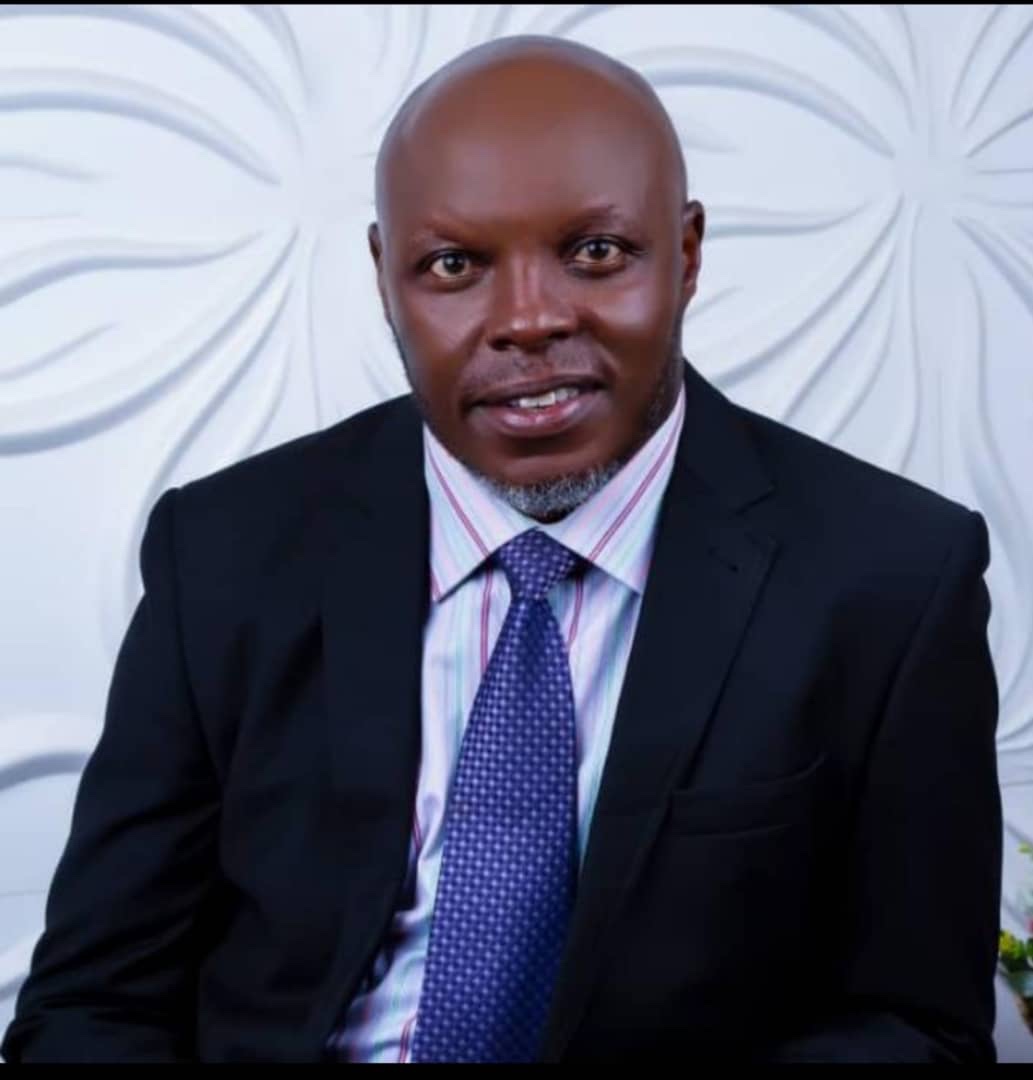The lyrical tunes of the popular song released in 1984 by the late Nigerian musician, Sonny Okosun of blessed memory, woke me up from deep sleep early this morning, “Which way Nigeria, which way to go, I love my fatherland, I want to know, which way Nigeria is heading to …..”_ Back in those days, I had just gained admission into the prestigious University of Lagos, Akoka-Lagos, but regrettably more than 38 years later, the lingering question contained in that iconic rhythm still remains unanswered.
In 7 months time or thereabouts, a General Election is scheduled to hold which is intended to elect amongst others the next President of the Federal Republic of Nigeria; members of the National Assembly; a number of State Governors and members of State Houses of Assembly that is of course, if a State of Emergency is not declared either in part or nationwide, thereby postponing conduct of elections as a result of prevailing insecurity concerns all over the country. It won’t be the first time, you may recall in 2015, elections were postponed for 6 weeks as a result of the insurgence that had the potential of disenfranchising many voters in the North-East geo-political zone, as several local government areas were under heavy siege.
Some readers may wish to dismiss such thought as an over-hyped impossibility and a mere exaggeration by pessimistic commentators of the true state of affairs in the country today. I fervently disagree given current events, such that last night (5th July 2022) we heard confirmed reports that a convoy of operatives and an advance team of the President was attacked by terrorists at Dutsinma in Katsina State near Daura (the hometown of sitting President Buhari) and on the same day over 300 terrorists invaded the area of the maximum security Prison, Kuje, Abuja in the Federal Capital Territory (FCT) in a deadly bomb attack and released over 600 inmates back into society, many of them being Boko Haram members. Even though it seems the major political debate has all eyes and ears focused on the Presidency, what happens in each of the 36 state houses of assembly; the 360 federal constituencies; 109 senatorial districts and contestable governorship elections, are crucial factors that will mould the shape of the country for the next four years.
On reflection, looking at manifestoes and political party campaigns, in 2015 the All Progressives Congress (APC) contended that, amongst other things a change was need an in particular, ‘Insecurity’ and ‘Corruption’ had reached deplorable levels of acceptability and they had a three-point agenda which added the ‘Economy’ to these two areas as their main focus of attention. If their claims and postulations were correct at the time, then perhaps Nigerians were justified in their resolve to sack the Peoples Democratic Party (PDP) government led by former President, Goodluck Ebele Jonathan, who was then completing an uninterrupted 16-years of PDP administration at the national level, which during those 16 years was supervised by a trio of Presidents – Chief Olusegun Obasanjo, Mallam Umaru Musa Yar’Adua and Dr Goodluck Jonathan.
Although, some participants of the 16 years of PDP governance jumped ship and joined forces with the then newly formed alliance the APC in 2014, notable amongst them the self-styled “new PDP (nPDP)” included the five PDP Governors Rotimi Amaechi, Rabiu Kwankwaso, Murtala Nyako, Abdulfatah Ahmed and Magatakarda Wamakko, however, in the main, most of the party members who were called failures by APC in 2015 are still parading themselves today in the PDP and frantically jostling to regain power at the centre in 2023. Most prominent amongst them is the 2023 PDP Presidential candidate Alhaji Atiku Abubakar, who was the Vice-President of Nigeria for eight years from 1999 through to 2007.
On its own part, the APC has held sway at the national level for the last 7 years from 2015 to date wherein the scorecard of performance judged against the prism of their 3-point agenda does not leave very much to be desired. Whether you talk of insecurity/insurgency, corruption or the economy, it is very hard to score the administration with a pass mark in any of these important sectors. Some critical observers have actually accessed negative progression, meaning that the last 7 years has taken the country backwards. If this assessment is accurate, then what business does the APC and its participants have jostling for retention of power in 2023.
Let me ask you this, which miracle-maker(s) have just fallen from Jupiter or Mars and joined the APC that are coming to transform the dreadful tide? Have such people not been strolling along in the corridors of power for the last 7 years without finding solutions to the many problems confronting a seemingly incompetent administration that have served to impoverish the ordinary Nigerian both psychologically, socially and economically? After all, the 2023 APC Presidential candidate and national leader of the party, Asiwaju Bola Ahmed Tinubu has been on the scene throughout and whilst recently taking credit for installing Muhammad Buhari as President after three previous failed attempts, he has overseen the backward trend since 2015, with arms folded and done little or nothing to stem the decline and deterioration.
To a large extent, the same can be said about the other pretentious contenders seeking to occupy the seat of President in May 2023 are not exonerated, the likes of Peter Obi, Rabiu Musa Kwankwaso, Omoyele Sowore, etc. Have they not been an integral part and co-conspirators of the failed project for 23 years since 1999 and beyond, or do we suddenly see them as reformed aliens who dropped from planet Neptune to miraculously change the nation which is in so much turmoil?
Let’s face it in an ideal world, none of these people should be in the frame for seeking any political office for several years to come, but Nigeria is what it is and will remain so until the people are ready to radically change the statusquo. The common adage that, “Rome was not built in a day” rings true throughout the globe, but since we began this 4th Republic in 1999, let us tell ourselves some harsh realities, what we can point to as having been built as at the end of June 2022, is nothing short of a sordid tale and leaves a bitter taste in the mouth.
There’s no gainsaying, unless something dramatic happens in the last 10 months of the Buhari administration, whoever is most unfortunate to become the next President of Nigeria in 2023 will be facing an incredibly uphill task and will have to contend with a myriad of challenges which include the following non-exhaustive list:
· Terrorists exercising monopoly over violence – Islamic insurgents; stubborn fulanists; hersmen clashes; militants; banditry; unknown gunmen; ISWAP infiltration; etc.
· Insecurity on farmlands leading to 19.4 million people threatened with food insecurity;
· Corruption and cronyism at an all-time high where one official allegedly stole N171billion;
· Nigeria now the World’s global capital of extreme poverty, in 2018 there were 86.9 million citizens living below the $1.90 per day threshold, increasing by a further 7 million by December 2022 – World Bank;
· Excessive government borrowing leading to 96% of income being used to finance national debt burden;
· Unemployment in Nigeria currently stands at a depressing 33.3%;
· Uncompleted infrastructure whereby an estimated $10billion is required for next 10 consecutive years to fix dilapidated infrastructure – World Bank;
· Exchange rates stand at $1 to N610 in the parallel market declined from $1 to N198 in 2015;
· Declining Foreign Direct Investment;
· Petrol subsidies gulping increased amounts approaching N4 to N5trillion annually when they were said to have been removed;
· The four petroleum refineries in the country have not been privatized and remain moribund;
· Monumental failings in power sector where average national power generation hovers around 4,056MW and the sole national grid has collapsed 15 times this year alone;
· Continued dependency on importation of foreign goods for consumption;
· Inflation which was 9.01% in 2015 has risen to 17.71 in 2021
· Food inflation evidenced by rising Food Index;
· Nigeria now ranks 11th most miserable territory in the 2021 Misery Index of the world;
If you are a Nigerian over the age of 18 years and don’t have a Permanent Voters Card (PVC) go and register with INEC quickly. Without your PVC, you will not be eligible to vote and have the power to effect a desired change. At the appointed time when you take your PVC and walk to the polling unit on Election Day, ask yourself this critical question, “Am I voting for the individual whom I truly believe can solve or help to solve this long list of decadence prevalent in the system today?”
On that day there should not be:
1. ethnic or religious sentiments in your mind;
2. any financial inducements in your hands which could change your conviction; and
3. coercion from your political leaders & community godfathers to influence your decision;
4. Just go forth and apply pure commonsense.
Unless you vote positively and join your voice to millions of other Nigerians doing exactly the same thing, these problems will continue for the next 4 years until 2027. You have a bigger hand than you recognize in fining an answer to the question posed by the late musical icon Sonny Okosun, “Which way Nigeria, which way to go, I love my fatherland, I want to know, which way Nigeria is heading to.”
‘Gbenga Akinmoyo Barr. (GARO)
CEO LeadIFollow Limited
6th July 2022


